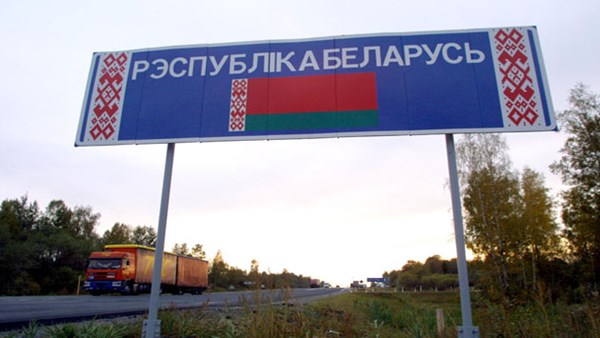U.S, Canada and UK slam sanctions on Belarus
New sanctions were imposed on Belarus on the anniversary of the 2020 presidential election, which was not recognized by Western countries and turned into protests that almost overturned the regime of Alexander Lukashenko.
On Monday, almost synchronously, the United States, Britain and Canada announced the expansion of personal sanctions and the introduction of tough economic measures against Belarus.
US President Joe Biden signed an executive order allowing to freeze assets and prohibit transactions with any legal entities and individuals associated with the government of the Republic of Belarus or its actions to suppress protests, voter fraud, "the elimination of political opposition and civil society organizations."
Sectoral sanctions, according to the executive order, will affect the security agencies of the Republic of Belarus, as well as energy, production of potash fertilizers, tobacco products, construction and transport.
These measures, as follows from the document posted on the White House website, should work according to the Iranian scenario, which provides for punishment not only for the direct perpetrators, but also for possible intermediaries, as well as participants in the schemes and attempts to circumvent them.
Following Biden's order, the US Treasury Department immediately announced the inclusion of 44 individuals and legal entities in the "blacklists". Among them Belaruskali, a key exporter supplying the economy with hard foreign currency, as well as Interservice and Belneftegaz, which are among the country's largest exporters of petroleum products.
Four months are given to finish transactions with Belaruskali. All of them must be finished before December 8, 2021.
BelKazTrans, the monopoly supplier of Russian coal, and Inter Tobacco, which produces Marlboro and Parliament were also put on sanction list.
All of them are now banned from dollar payments, and their assets in the United States are frozen. The same applies to the Investigative Committee of Belarus, the National Olympic Committee, the Department of Internal Affairs of the Gomel City Executive Committee and the youth sports club "Shock", follows from the list published by the Office for Foreign Assets Control of the US Treasury Department.
The "blacklists" of personal sanctions include the Minister of Transport and Communications, Alexei Avramenko, the Director of the Aviation Department of the Ministry of Transport, Artem Sikorsky, as well as the heads of Belaeronavigatsia, Belshina, Grodno Azot and Belneftekhim.
Canada joined the sanctions repeating the measures imposed in June by the European Union. Purchases of potash fertilizers and petroleum products in Belarus, as well as lending to the government and banks and structures controlled by it are prohibited.
Great Britain also announced "trade measures for potash, petroleum products, surveillance and radio interception devices, goods intended for the manufacturing of cigarettes, as well as dual-use products and technologies."
In addition, private jets associated with Alexander Lukashenko and his son Viktor, presidential press secretary Natalia Eismont and head of the presidential administration Igor Sergeenko, Defense Minister Viktor Khrenin, interior Minister Ivan Kubrakov, Chairman of the KGB of Belarus Ivan Tertel, as well as Russian billionaire Mikhail Gutseriev are banned from flying over the territory of the UK.
Personal sanctions are being imposed against Gutseriev, who is already a figurant of the EU sanctions lists.
Britain remained an important window for the export of Belarusian petroleum products to the West, and now, apparently, this window is being closed.
As for US sanctions, they prohibit settlements in dollars, which seriously complicates foreign trade, and in addition, "scares" counterparties with the possibility of secondary sanctions.
Restrictions are becoming a serious challenge for the Belarusian economy, as the main export industries are under attack, at the same time other opportunities for the flow of currency into the country through financial transactions are cut off. This means that the sanctions will affect the real sector. There will be a drop in GDP, and, possibly, local outbreaks of unemployment. Belarus' dependence on Russian loans will also increase.
